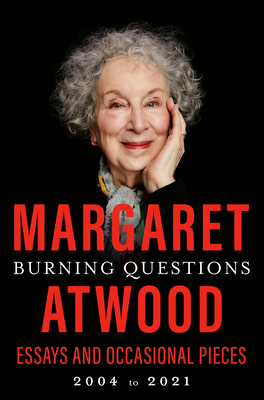
Subtitled Essays and Occasional Pieces, 2004 to 2021, this is Atwood’s third collection of essays, speeches, book introductions, and reviews. What astonished me was how readable this heterogeneous collection is. Of course, we have Atwood’s voice throughout: intelligent, calm, learned, self-deprecating, and witty.
In today’s world, where so many people value opinions and beliefs over fact, it is a huge relief to communicate with someone who actually believes in science. Both of her parents were scientists–an entomologist and a nutritionist–and she spent much of her youth in the woods of Northern Ontario. She talks about the family pulling over when an infestation was spotted so that they could collect the invading critters. “Other families stopped for ice-cream cones. Ours stopped for infestations.”
That early influence shows in her concern with the threats to our environment, both in her fiction and her nonfiction, including a number of pieces in this collection. She writes of how this concern fueled her Oryx & Crake trilogy and her MaddAddam trilogy, as well as a moving tribute to Rachel Carson, calling her “a pivotal figure of the twentieth century” and “Saint Rachel.”
Another theme that threads through this collection is the way autocracies try to silence writers and control women. She has been a force in founding Pen Canada and acted as its president in the 1980s. In “If We Don’t Defend Free Speech, We Live in Tyranny” she writes about the attack on Salman Rushdie and the murder of translator Hotoshi Igarashi. In another piece she states that “There is nothing that repressive governments desire more than imposed silence . . . secrecy is an important tool not only of power but of atrocity.”
She generously continues to write about The Handmaid’s Tale, noting that “absolutist governments have always taken an inordinate interest in the reproductive capabilities of women.” She adds that writing a dystopia from a woman’s point of view “does not make The Handmaid’s Tale a ‘feminist dystopia,’ except insofar as giving a woman a voice and an inner life will always be considered ‘feminist’ by those who think women ought not to have these things.”
These pieces are not all darkness with a glimmer of wit. In “Literature and the Environment” she writes that “as long as we have hope—and we still do have hope—we will be telling stories, and—if we have the time and the materials—we’ll be setting them down; because the telling of stories, and the wish to listen to them, transmit them, and derive meaning from them, is built into us as human beings.”
Indeed, the pieces I most appreciated were about how essential the arts are to our well-being and about writing in particular. Parsing out her approach to these short pieces taught me so much about her methodology. Often she starts with a clear statement of purpose: “I’ll divide my talk into three parts, and I’ll even tell you what they are, just so you know what’s coming.” That’s from a speech honoring the Department of Forestry’s centennial. I’m touched by how, despite her blockbuster status, she’s willing to turn up and speak at so many events.
After the statement of purpose, she wanders here and there in the best tradition of essay-writing. She includes asides, rhetorical questions, digressions, allusions. She explores the question without answering it, instead opening our minds—gently and respectfully. I also especially appreciated the pieces about other authors and about her late husband, author Graeme Gibson: both joyful moments and mor trying times as he drifted deeper into dementia.
While some readers may be unnerved by this collection’s length, diversity, and chronological structure (rather than thematic), I found it a joy to read. Most of the pieces are quite short, making it a perfect bedtime book: you can read a few pieces and chuckle at her quips before you turn out the light.
I’m grateful to Atwood for collecting these pieces—no small task—and putting them out for us to absorb. In fact, for a more global understanding of the issues facing us, their interconnectedness, and how we can move forward, this book cannot be beat.
What have you read by Margaret Atwood? Her novels, poems, and/or essays?
1 thought on “Burning Questions, by Margaret Atwood”